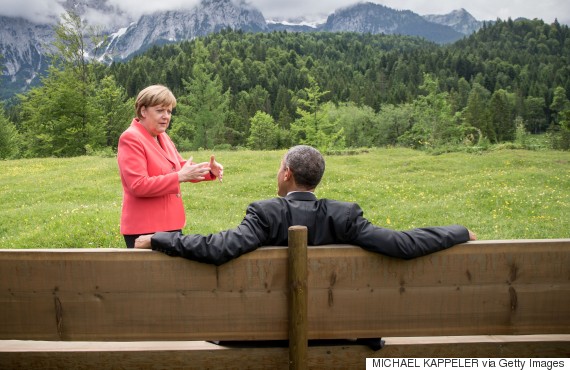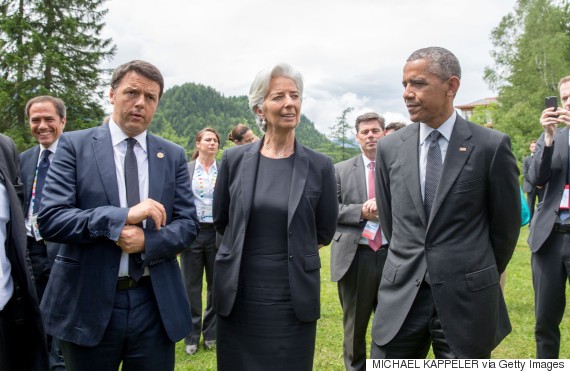The ongoing Greek debt crisis is pitting the United States against its German ally, as the U.S. pushes for a solution that keeps Greece in the eurozone currency union.
On Monday, the Obama administration renewed its calls for a resolution to Greece’s debt crisis, but in a notable change from recent months, focused its remarks on Greece’s creditors.
"The task before the leaders of Europe remains the same," White House press secretary Josh Earnest said at a press briefing. "We have long indicated that it's our view that it's in their collective interest for these differences to be resolved."
“It will require both a package of financing and reforms that will allow Greece to achieve, or at least be on a path towards, some debt sustainability, but also be on a path towards economic growth," Earnest said, referring to the results of Sunday’s referendum. "This was a pretty clear expression from the Greek people that they do seek greater economic opportunity."
But Germany, which is the largest single holder of Greek government debt, and considered by many to be the continent's most powerful nation, would not even commit to a deal that keeps Greece in the eurozone.
And German Vice Chancellor Sigmar Gabriel, the head of the center-left Social Democrats party, had perhaps the harshest remarks to that effect from an official German source.
"If Greece wants to stay in the euro, the Greek government must quickly make a substantive offer that goes beyond its willingness thus far," Gabriel said. "For the Greek population, life will get even more difficult in the coming days and weeks. The definitive insolvency of the country now is an imminent threat.”
That the warning came from one of Germany’s center-left political leaders (rather than a conservative cabinet minister like Wolfgang Schaeuble) does not bode well for passage of a new bailout deal in German parliament.

Wolfgang Munchau, a columnist for the Financial Times, thinks the Germans have simply given up on the prospect of a deal that keeps Greece in the eurozone.
“The trouble is I am no longer sure whether all the creditors -- specifically Germany -- still want a deal,” Munchau wrote on Monday. “In Berlin, the belief is hardening in official circles that no deal can be reached with a government led by [Greek prime minister Alexis] Tsipras.”
In the past, President Barack Obama has publicly expressed doubts about the loans-for-austerity approach taken by European leaders to address debt crises in struggling European nations. But until Monday, the administration had been striking a more even-handed tone, refraining from making specific policy prescriptions.
Peter Doyle, a former senior manager at the IMF who resigned in 2012 over the IMF’s handling of the Greek crisis, welcomed the White House’s Monday statement.
“I am very pleased that they are adopting this line and fighting it as they are,” Doyle said. Doyle has been critical of the United States for not using its leverage in the IMF to pressure the creditors more forcefully.

But Ian Bremmer, founder of the Eurasia Group and author of a new book about American power, thinks the White House’s statements do not go far enough because they are not backed by any concrete economic or diplomatic pressure from the U.S.
Bremmer said the White House statement is “roughly the equivalent of [UN Secretary-General] Ban-Ki Moon condemning violence against Syrian civilians. It expresses a sentiment that is broadly held, but it is not like we are putting money on the table or have a secretary of state meeting with key leaders. Americans are almost as on side lines as the Brits are at this point.”
Bremmer nonetheless believes a debt deal between Greece and its creditors is more likely in the wake of the referendum because it gives Tsipras political cover in Greece. He credits Tsipras with cultivating the support of opposition leaders since then, and replacing controversial finance minister Yanis Varoufakis.
“Tsipras could have taken a much more populist approach, but he did not. He did the smart thing,” Bremmer said. “Now the Germans have to reciprocate.”
Before You Go








